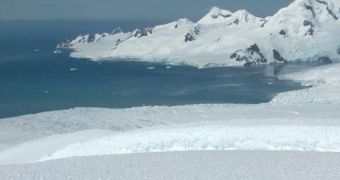Experts from all around the world are about to embark on one of the most significant scientific endeavors of the past years – they are going to search for existing life in an underground Antarctic lake, which has been sealed by more than 3 kilometers of ice millions of years ago. If the scientists, led by UK researchers, manage to find anything still living down there, then it could be a real revolution for the science world, simply because life in that lake, without any outside influence, could have evolved a bit differently. Or it may be a lot different, the team hopes.
If they succeed in finding something in the underground lake, which is roughly the same size as Lake Windermere in the UK, then the researchers could potentially learn about how climate change influences the development of animals, and maybe even gather some clues as to how future sea-level rises will act. In all truth, it's hard to believe that anything could still be alive in that place, seeing how it's perfectly sealed from the outside world. The only chance for creatures to survive would be to adapt to an oxygen-deprived atmosphere.
“This is a benchmark in polar exploration – our team will be the first to explore this ancient lake. It is a dark, cold place that has been sealed from the outside world and it's likely to contain unique forms of life. We hope to discover more about how life can exist in extreme environments and how Antarctica has changed in the past – which might help us understand more about other places on earth,” University of Edinburgh professor Martin Siegert, who is the leader of the scientific consortium, says.
“This project is a great scientific challenge and the technology required to drill 3 km through the ice without contaminating the lake is equally ambitious. Over the next few years, we will build a hot water drill and probe, and make preparations to transport a sophisticated operation deep into the interior of West Antarctica. We really are at the frontiers of scientific exploration,” British Antarctic Survey Head of Technology and Engineering David Blake, who is also part of the new project, adds.
The research holds great value for understanding how periodic climate changes affect life on Earth, and may give humankind clues as to how to prepare for the current warming period we are experiencing. The study could also help us understand how to fight the effects of carbon dioxide on the atmosphere.

 14 DAY TRIAL //
14 DAY TRIAL //